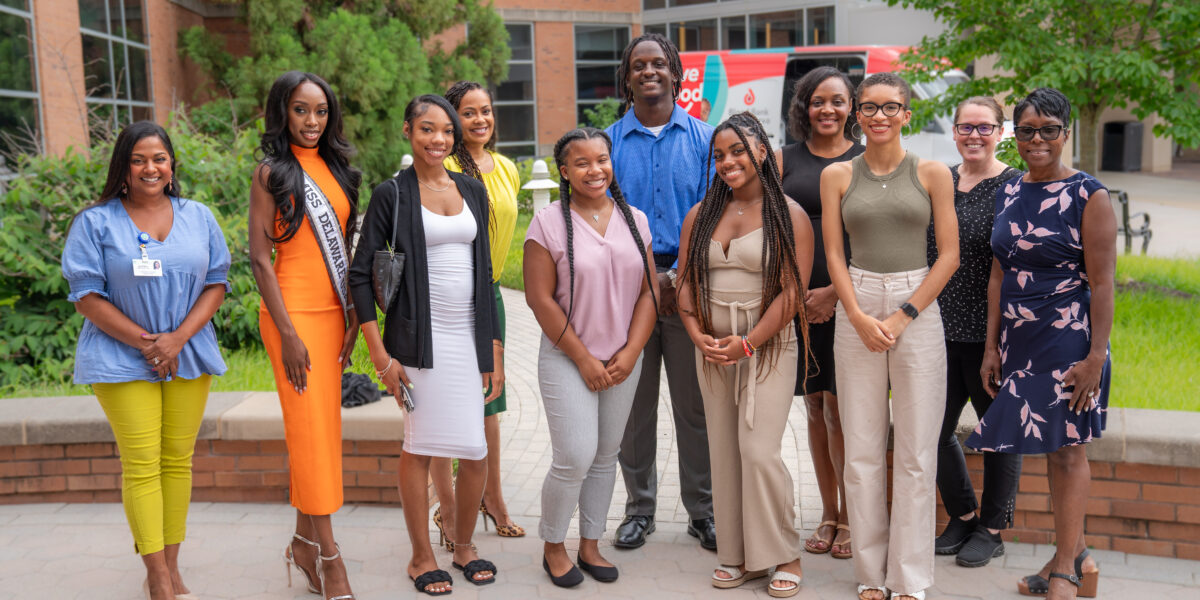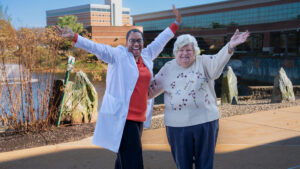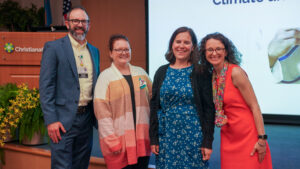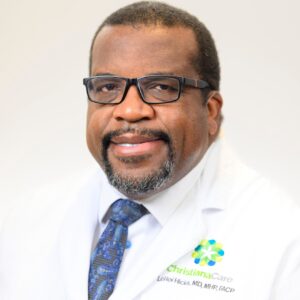Delaney Leonard’s internship this summer with ChristianaCare helped the Howard University sophomore learn about the work of Community Health and its expansive role in supporting education, awareness and access to health care for all people.
Just as importantly, the experience also taught Leonard about herself.
Over the summer, Leonard hung out with the kids of Camp Fresh, which teaches youth how to become advocates for improving the health of their neighborhoods. She helped members of the Community SOS team formulate a drug education curriculum for use in schools. She handled data analysis, survey production and report writing.
“That was the biggest takeaway — I learned what I’m actually good at and what are my strengths. I learned that I’m really good at synthesizing information and getting down to the baseline of what somebody is talking about,” she said.
“Getting the knowledge of what my skills truly are — not just checking off a list, but truly understanding what it was I was strong at — was really valuable for me. Based off this summer, I’m entering the school year with a completely different mindset.”
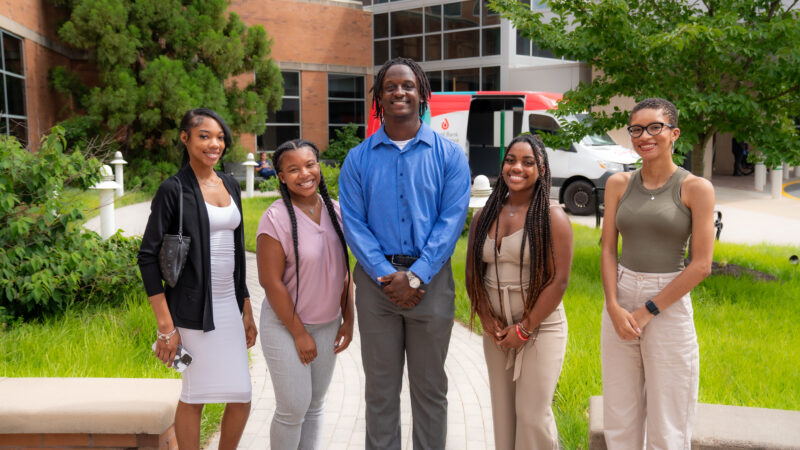
Getting a foothold
Leonard is one of eight interns who spent the summer at ChristianaCare as part of its Future of Health scholarship program. In 2022, ChristianaCare committed to providing $500,000 in support to 10 high school graduates attending Historically Black Colleges and Universities (HBCUs). In addition to the $12,500 annual scholarship, students also are offered a paid internship each summer while they are in college.
For ChristianaCare, scholarship program helps develop the next generation of health care leaders while also providing another opportunity to promote inclusivity and diversity among its more than 13,000 caregivers.
But for students, it’s also a chance to understand what it’s like working in health care and how to navigate a corporate setting, said Pamela Ridgeway, MBA, MA, SPHR, chief diversity officer and vice president of Talent & Acquisition at ChristianaCare.
Lincoln University sophomore Solomon Devard, an information technology major, spent time with the Digital Acceleration Group and the Health & Technology Innovation Center during his internship. He saw firsthand how working in health care IT requires the ability to pivot quickly and go to where you are needed.
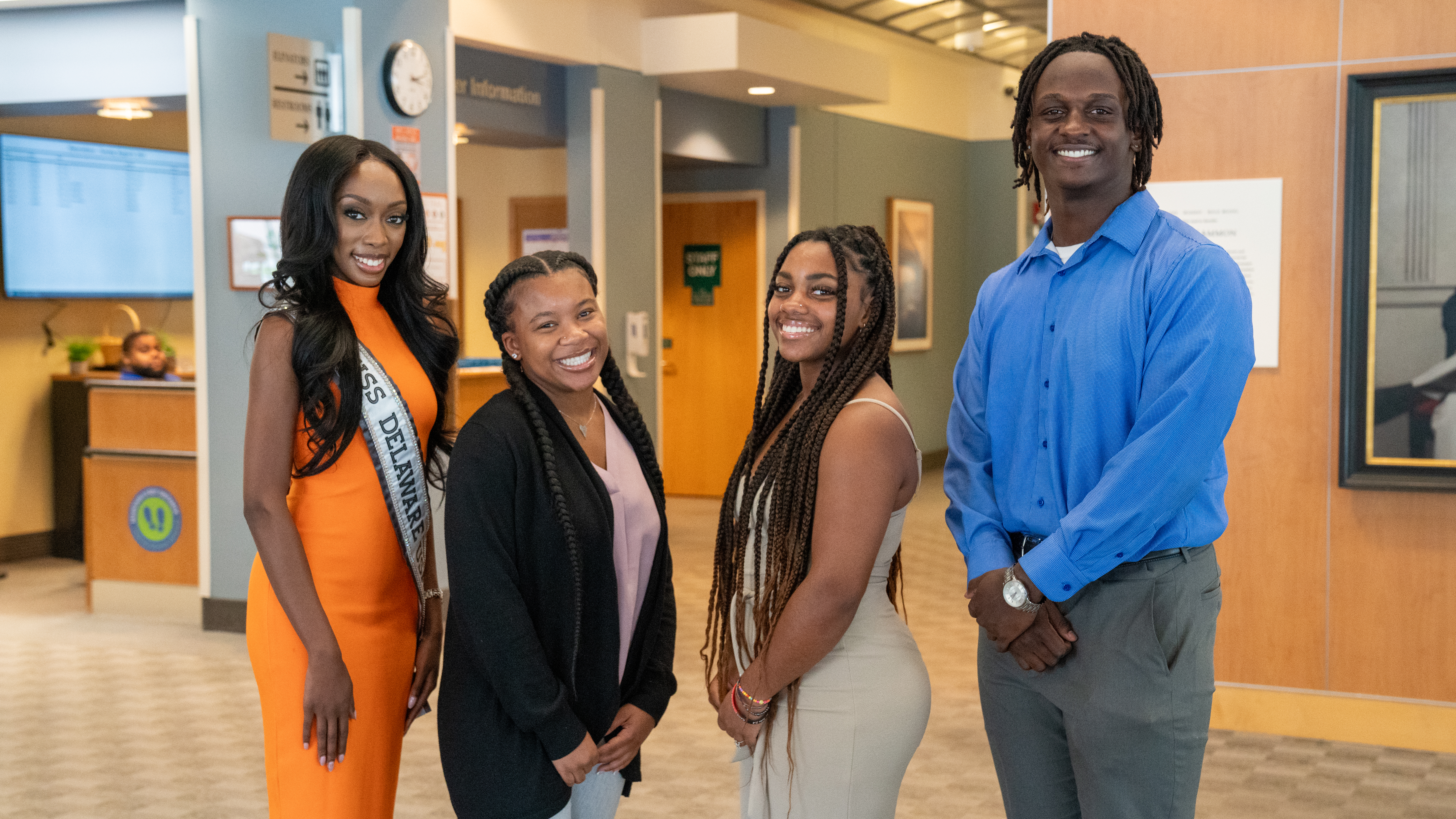
“To be working with my major is truly a blessing. It was amazing to be a part of this,” he said.
‘Opened my eyes’
While meeting with the students at the end of the summer, Ridgeway told the group that any hiccups they may have experienced during their internship — including feeling nervous, unsure or even worried about failing — are all part of the learning process.
“There is always going to be change or a situation to deal with. Right now, there’s a chance for you to say, ‘I’m going to figure out my own lane.’ And then, when you’re in the workplace at 22 or so, you’ll know how to navigate this. It really is giving you a foothold, so you go back to school with a different outlook,” she said.
Madison Perry, a Jackson State University psychology major interned with the Office of Inclusion & Diversity this summer. She came into her internship planning to be a pediatric physician assistant, but after working with the I&D team on projects including the recent Pride 365 campaign she is contemplating other opportunities to make a difference in health care.
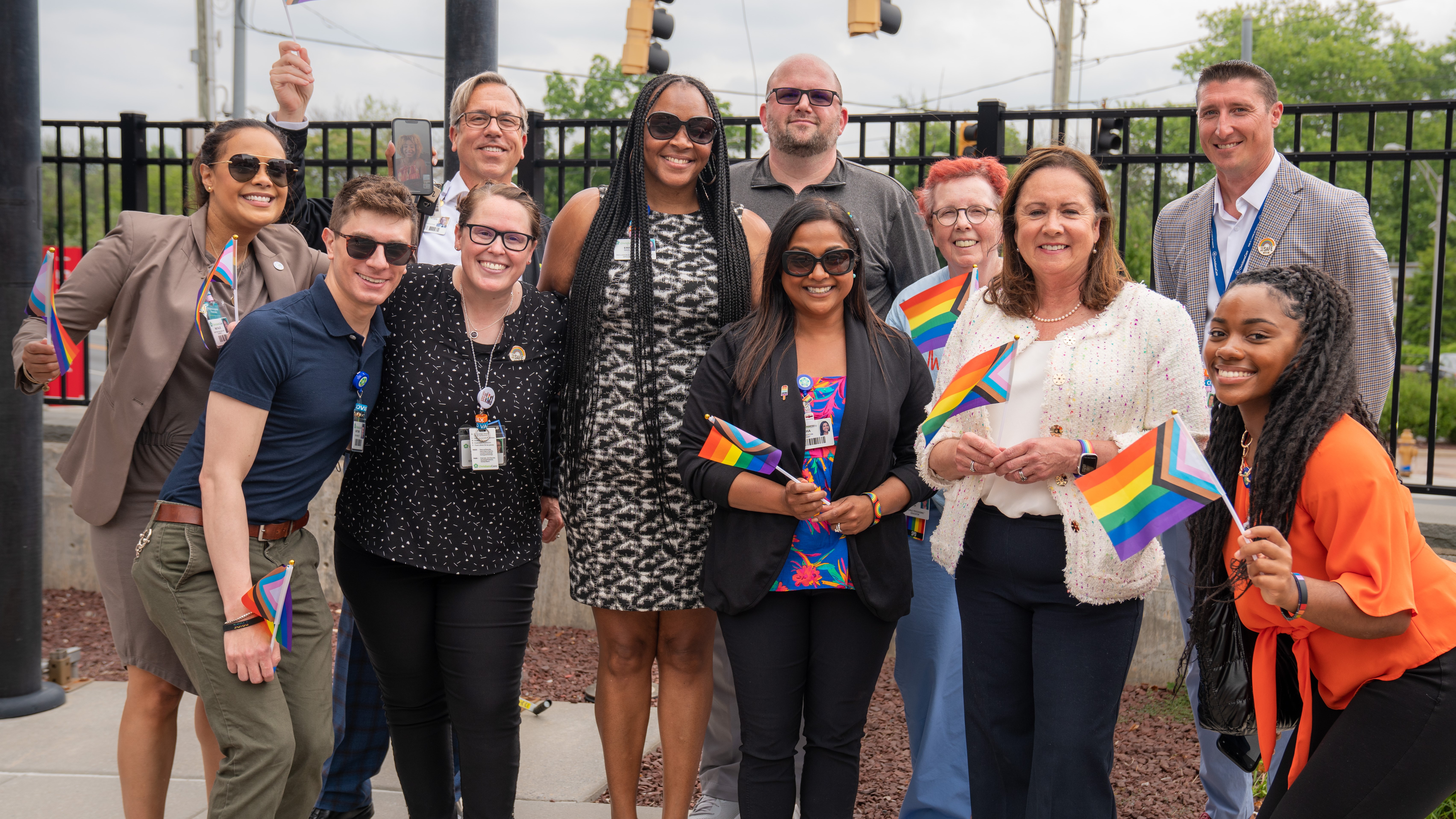
“This has just opened my eyes to what goes on behind the scenes. As a Black woman, I know what it feels like to not be seen or heard. I really enjoyed seeing what went on in Inclusion & Diversity to make caregivers feel seen and heard,” Perry said.
Still, the internship did cause one unexpected problem.
“Now, I have no idea what I want to do,” Perry said, laughing.
Combating imposter syndrome
Sharlene Johnson Burton, a talent management consultant with ChristianaCare, talked with students about lingering challenges they may face as they ascend the career ladder.
Burton said Black professionals often lack access to higher level managers and professional development resources. They also experience a higher wage gap compared to their peers. Surveys of Black professionals have found many believe they need to work harder than their peers to advance because of differences in performance expectations.
Imposter syndrome — self-doubt about one’s abilities — can sting even the most successful people – like former First Lady Michelle Obama – but there are ways to counter its effects, Burton said.
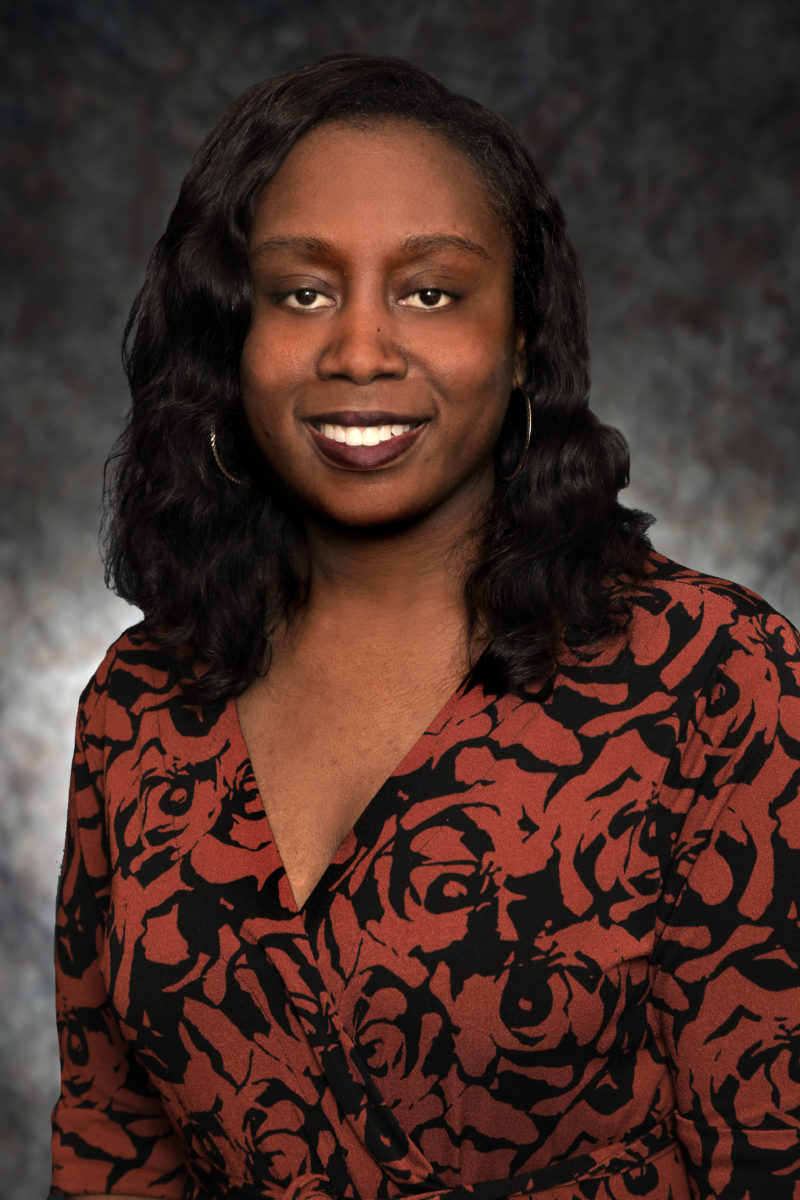
“I think the key thing is that it’s less about how others see you and more about how you choose to see yourself. Assess your strengths and challenges,” Burton said. “Recognize how racism, bias and prejudice impact how you see yourself. You have to acknowledge it so you can tame it.”
Ridgeway told a story about being named to a top list of chief diversity officers. She was thrilled by the recognition, but soon discovered that her name was incorrectly listed. She admitted she was afraid to point out the error for fear that speaking up might earn her the reputation of being difficult or impact her consideration for future awards.
“I think it’s important for people to know that those feelings don’t leave you because you’re a certain age or you’re a certain role. It takes a lot of work but if you really want to be a better version of yourself you have no choice but to do the work,” she told them.
As Brooke Brothers heads back to Delaware State University, she can feel a difference in her outlook, thanks to her time spent on the 6C medical observation unit at Christiana Hospital.
“It made me feel good to see other Black nurses and Black nurse practitioners and physician assistants. Having those nurses be mentors to me and give me advice, it is encouraging me to go really hard at school,” she said.
Tips From Noa
ChristianaCare’s HBCU interns also heard from Noa Mills, an entrepreneur, philanthropist and published author who is representing the state of Delaware at the Miss USA 2023 contest later this year. Mills is an educational reform and mental health advocate who founded the organization ReThink to revolutionize education.
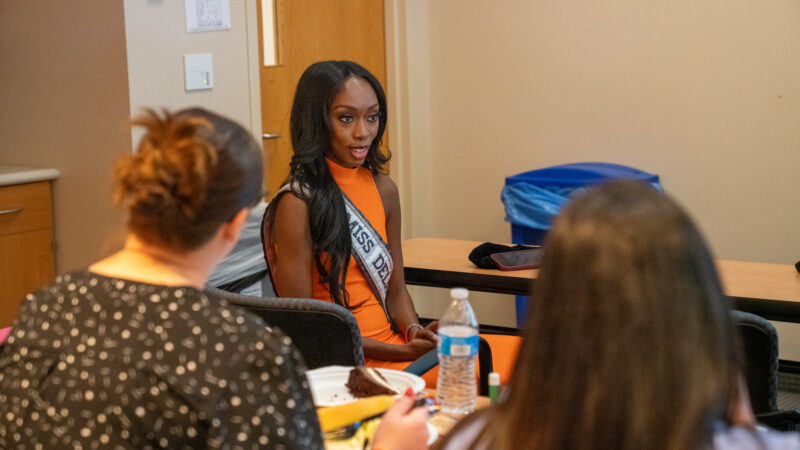
Here are a few of her tips:
- Anything you want is going to require work. When Mills won the Miss Delaware USA crown it wasn’t her first attempt at the title. Rather, it was her third try. Each time she didn’t win, she worked harder whether it was training in the gym, practicing her answers to interview questions or affirming her own self-worth. Her win – the first ever for an African American woman – was the result of nonstop work ethic. “If there’s anything that you want, there’s nothing that your skin tone can keep you from,” she said.
- Embrace the ‘so-what’ theory. People will always have opinions about you, said Mills, noting that she has been called names and attacked on social media solely because of her race. To them, she says, “So what?” Their opinions are their own – “unless you make it a fact,” Mills said. “Everything that has power only because you give it power.”
- When you have an opportunity, make sure to recreate it for someone else. Progress doesn’t happen for one person. “It is your job to make sure that when someone enters a space that they understand they are welcome, that this is for them as well, that they have the opportunity, the ability and capability to stand right next to you,” she said.
- Stay open-minded. This includes making friends with people who don’t look like you, networking with people from different backgrounds and experiences and being open to new perspectives. “We all have something different to share,” she said.
